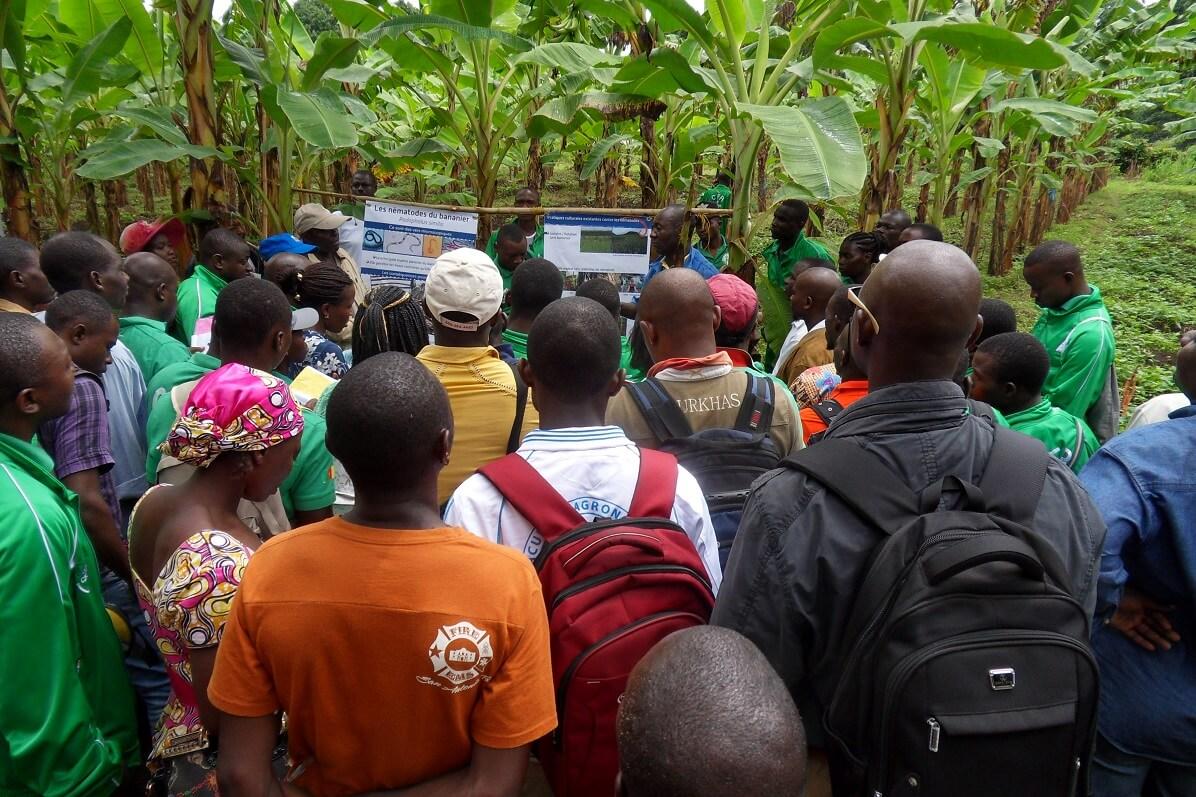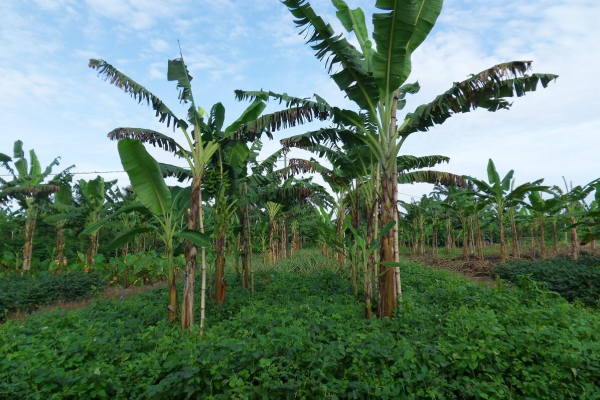- Home
- Worldwide
- CIRAD worldwide
- Projects
- FABA project
Agricultural training for plantain banana growers in Africa - FABA

Training in ecological intensification of plantain banana in the 'Plantain One' field, CARBAP, Njombe, Cameroon © S. Dépigny, CIRAD
Issues
Plantain banana is a vital part of the diet for people in central and West Africa, who often call for more consistent year-long supplies and lower prices. Many producers have embarked upon increasing production through conventional intensification of plantain banana growing. Supporting change in African plantain banana chains by training producers – and other players in the chain – in agroecological practices is one way of fostering the ecological intensification of plantain banana growing. This would serve to reconcile economic performance with respect for the health of local people and the environment.
Description
Operations will be split between three phases:
- An analysis of training requirements among producers and other players in the plantain banana chain, to identify the teaching content to be produced and disseminated in order to satisfy demand and raise awareness of ecological intensification;
- Building the teaching content and tools identified, including a library of teaching videos to build skills among plantain banana producers, notably in terms of applying agroecological practices to plantain banana;
- Testing, support by "trainers" and dissemination of the teaching content and tools produced, in particular through their use in a range of initial and professional training courses.
The FABA project is also a pilot project whose main aim is to foster synergies between agricultural research and initial and/or professional training within the framework of North/South collaboration in support of an agricultural value chain. It illustrates CIRAD's training ambitions. The experiment is intended to be documented, to enable its use within other agricultural value chains.
Expected impacts
- Plantain banana producers in central and West Africa will be aware of the possibility of developing agroecological plantain banana production operations.
- They will thus be able to change their current cropping practices, and in particular stop using pesticides, which have proved largely ineffective in the current context in the plantain banana sector.
- Producers will be able to envisage other ways of growing plantain banana than as a monoculture, and develop intermediate cropping systems with a crop diversity "of use" to plantain banana growing and/or to production systems.
- This way of developing plantain banana growing will preserve the economic stability of production systems that reconcile plantain banana growing, public health (producers and consumers) and environmental health.
- The plantain banana value chains in the pilot countries will be better organized and take account of the issues in the sector in training programmes.
Contract partner
Institut Agro (Montpellier)
Associate partners
Réseau International de Formation Agricole et Rurale; institutional players; agricultural research organizations; public and/or private initial and/or professional training operators; nongovernmental organizations; farmers' organizations in the plantain banana sector in Cameroon and Ivory Coast
























